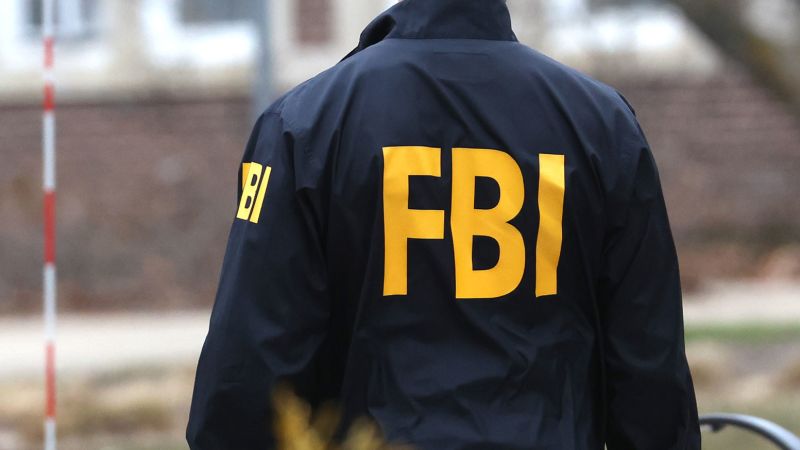US authorities have begun a new effort to target fundraising and other forms of support for Hamas, including any tentacles the terrorist group has into the United States, current and former US officials tell CNN.
The move is part of a broader reassessment ongoing in US intelligence and law enforcement agencies about the threat posed by Iranian terrorist proxies, including Hamas and Hezbollah, in the wake of the escalating violence in Israel and Gaza.
Hamas has long been known to have a network of supporters in the US that it uses largely for fundraising. But because the group has traditionally focused on attacking Israel, American authorities believed it was less likely to carry out attacks against US interests or on US soil.
Until the events of October 7, the view of Hamas, one US official said, was “they’re a low priority. They’re fundraising.”
Now, the situation in Israel and Gaza has led US law enforcement agencies to shift and launch a full-court press to target Hamas’ sources of funding and move intelligence resources to focus on the group.
Another US official said that in recent years, intelligence officials viewed Hamas and Hezbollah as on par with Irish republican groups and Puerto Rican extremist groups -– all of which have a presence in the US but aren’t considered a major threat to Americans.
Because of that, national security officials poured more resources into cracking down on terrorist groups, like ISIS and al Qaeda that do carry out attacks against US persons or interests, sources said.
“That’s your main goal, to prevent acts of terrorism,” Gregory Gonzalez, a former prosecutor with the Justice Department’s national security division, said in an interview. Gonzalez said that prosecutors, with limited resources, “have to focus on preventing physical harm first to American citizens.”
The initial attack by Hamas in Israel earlier this month took US officials by surprise for its brutality and coordination, as more than 1,400 people were killed and more than 200 taken hostage, including a handful of Americans. Since then, thousands have been killed during the conflict in Gaza and Israel.
The attack “has got everyone nervous,” a law enforcement source told CNN. “We realize we’re playing catch up. This wasn’t on anyone’s radar.”
The first public indication of the new effort by American authorities to crack down on Hamas came last week when the Treasury Department announced new financial sanctions against 10 Hamas operatives, seeking to cut off the group’s financing lifelines that touch the US financial system.
But moves are also happening behind the scenes, sources tell CNN, as authorities divert resources, build intelligence and work to get intelligence officials into the field.
“It’s on steroids,” one official said, describing the new focus on Hamas.
The FBI, Department of Homeland Security, and US Intelligence agencies are refocusing efforts to address possible threats, including reviewing existing intelligence to surface any threats that had been overlooked.
Since the attack on Israel, the FBI has begun reaching out to field offices in search of officers who have the ability to acquire information about Hamas and Hezbollah or infiltrate groups, one source told CNN, emphasizing that the effort is not aiming to target the Muslim community.
“We cannot, do not discount the possibility that Hamas or other foreign terrorist organizations could exploit the conflict to call on their supporters to conduct attacks on our own soil,” FBI Director Christopher Wray said recently.
A former US national security official said that previous reassessments of US intelligence priorities have occurred after major events, including the Iranian-linked plot to assassinate the Saudi Arabian ambassador to the US in 2011 and the US assassination of Qasem Soleimani, the leader of the Iran’s Islamic Revolutionary Guard Corps-Quds Force in 2020.
“Whenever there’s a flashpoint like this one, we take a look to see if there’s new information that changes the threat picture,” the official said.
Hamas has been designated as a terrorist organization by countries including the United States, the European Union and Israel. In 2021, the US State Department said Hamas receives funding, weapons, and training from Iran, raises funds in Gulf Arab countries, and receives donations from some Palestinians, other expatriates and its own charity organizations.
Justice Department prosecutors have largely focused on bringing charges in cases where individuals in the US have provided Hamas financial support. Because Hamas has been designated as a terrorist organization by the US government, offering the group material financial support is illegal under federal law.
“The reason for the material support statute is it relieves the United States from having to trace money to a bullet,” Joe Ferguson, a professor of national security law at Loyola University and former federal prosecutor, said in an interview with CNN.
“It requires only that the money be traced to an organization, that the organization be publicly designated” as a terrorist group.
Ferguson said that in the past, if US intelligence agencies had information on individuals known to be a “planner or plotter” of an attack, they would likely share that intel with the Israelis, while focusing on financing cases, which allowed them to protect sources.
He compared the “refreshed evaluation” of intelligence targets with connections to Hamas in the US to a rethinking of operations after the September 11, 2001, terrorist attacks.
“That is unquestionably going on here because Hamas, by its latest actions, has just elevated itself to the top of the international terrorism food chain from the perspective of the United States,” Ferguson said.
Read the full article here





